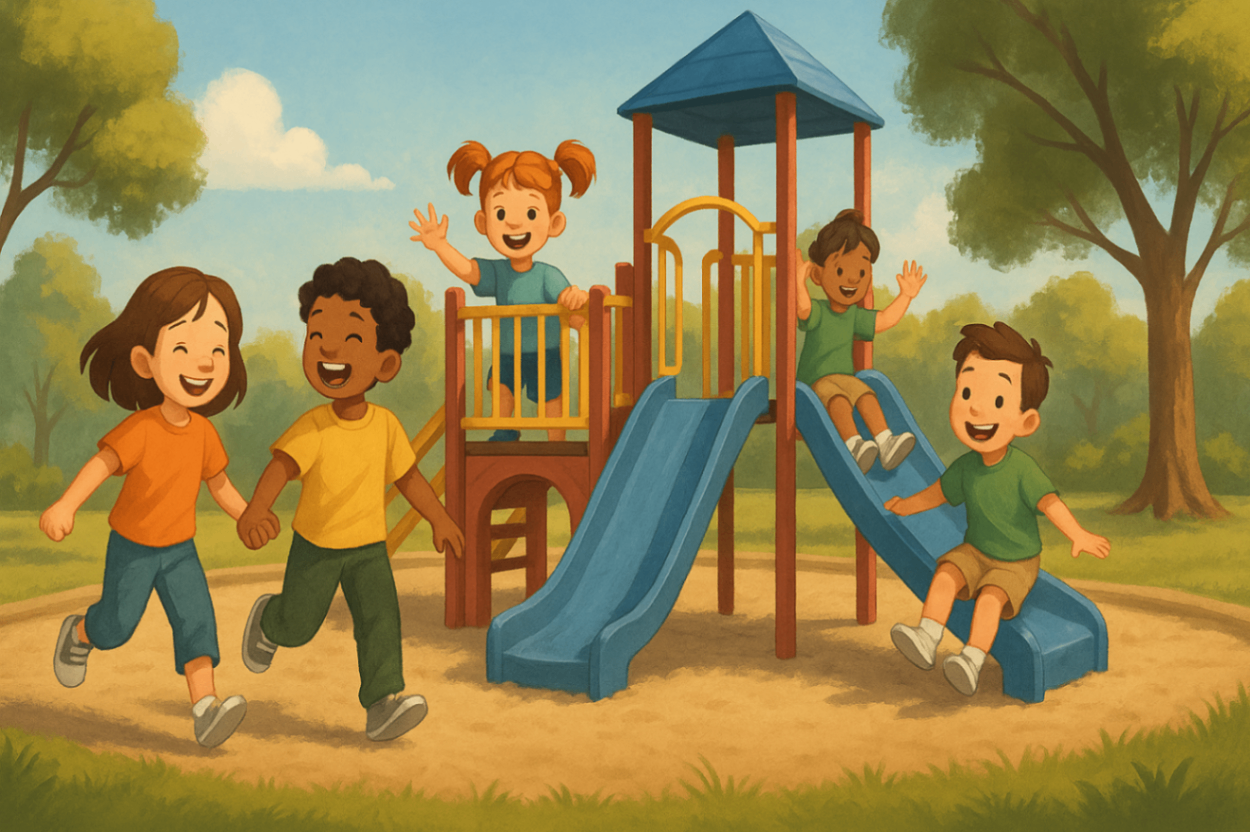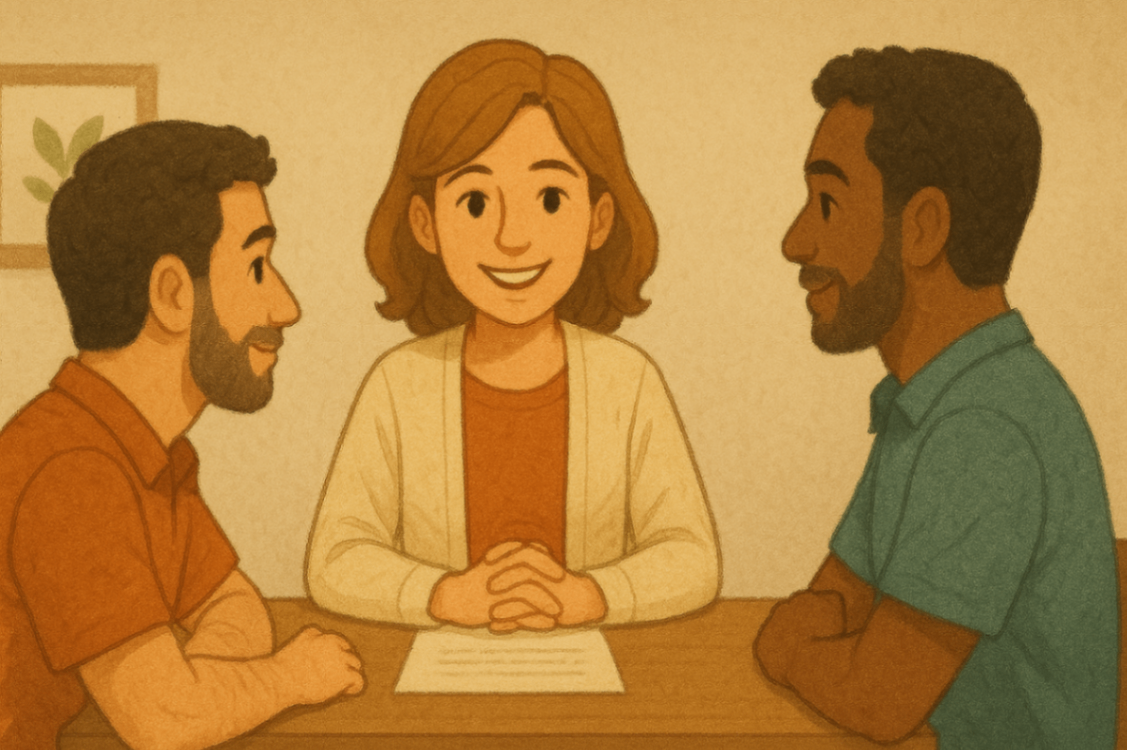
personalised positive behaviour support under the ndis
24 June, 2025
Children with developmental disabilities often face complex behavioural and emotional challenges. The NDIS child care framework provides a structure for addressing these issues through positive behaviour support that is customised to each child’s needs.
This personalised approach focuses on what the child struggles with and what they’re good at, helping them grow, adapt, and build confidence. Through functional behaviour assessments, collaboration, and ongoing support, families in Liverpool and surrounding suburbs can see meaningful, lasting progress.
Key Highlights
-
Tailored NDIS behaviour support plans address each child’s challenges and strengths.
-
Families collaborate with a therapy team to encourage positive behaviour support outcomes.
-
Functional behaviour assessments help identify triggers and create targeted strategies.
-
Ongoing review and updates through a PBS strategy review keep interventions effective.
-
Long-term skills development improves quality of life and promotes independence.
-
Individualised support empowers children to thrive in their home, school, and community settings.
What Is NDIS Behaviour Support?
 NDIS behaviour support is an evidence-based way to address challenging behaviours by focusing on each child's unique circumstances. Instead of offering generic advice, the support plan is carefully tailored. The goal is to reduce harmful behaviour, encourage skill-building, and support each child’s social, emotional, and academic success.
NDIS behaviour support is an evidence-based way to address challenging behaviours by focusing on each child's unique circumstances. Instead of offering generic advice, the support plan is carefully tailored. The goal is to reduce harmful behaviour, encourage skill-building, and support each child’s social, emotional, and academic success.
What Is Behaviour Support?
Behaviour support is about helping people, especially children, learn helpful patterns the way they act and how they think. It helps build new skills, so they can deal better with things that get in the way of a good quality of life.
This approach looks for the reasons behind problem behaviour and gives attention to teaching skills that make it easier for children to cope. There is a lot of focus on new skills such as positive reinforcement, ways to handle feelings, and how to talk about what's going on. These are important for better behaviour.
Behaviour support is there to switch out bad habits with ones that help, with the main goal being to make it easier for children to connect with others and feel in control. Tools like activity worksheets and special exercises help make these new ways stick, as children practice and build good habits. In places such as schools, this approach works by cutting down on things that trigger problem behaviour and helps children pick up coping skills that last. This way, their mental health gets a boost and they find new ways to deal with the tough stuff in life with better skills and support.
The Role of the NDIS in Behaviour Support
The NDIS helps connect children with specialist behaviour support services. These services are made to help children who have developmental disabilities or intellectual disabilities. The aim is to guide them towards new behaviours that fit their needs and goals.
NDIS-funded support gives children access to therapies, coaching, and interventions that help them make big changes. It makes room for functional assessments, like the behaviour support plan (BSP). The BSP acts as a simple plan that helps manage challenging behaviour in the way that works best for the child.
The NDIS also brings together families, team members, and carers. This teamwork builds inclusivity for children in both school and at home. The approach uses compassion and positive reinforcement. Team members work with each child to make sure the support plan matches their needs. Every intervention is made not just to help for one day, but to set up ways for children to get better at handling behaviour in the long run. This helps them feel and do their best at school and in every part of their life.
For children with autism, support plans may also include tailored therapies — learn more in our article on behavioural therapy for autism under the NDIS.
Why Personalisation Matters in NDIS Behaviour Support
 Every Child Deserves an Individual Approach. Each child develops at their own pace, and their behavioural needs evolve over time. That's why personalised positive behaviour support is essential. It considers factors like communication skills, emotional regulation, and home environment.
Every Child Deserves an Individual Approach. Each child develops at their own pace, and their behavioural needs evolve over time. That's why personalised positive behaviour support is essential. It considers factors like communication skills, emotional regulation, and home environment.
Personalised plans are especially critical for families in Liverpool suburbs like Casula, Wattle Grove, Moorebank, Holsworthy, and Chipping Norton—where access to consistent support can shape a child’s progress.
When parents are actively involved, personalised plans work even better — read why in NDIS parent training and your child’s progress.
Why Every Child Needs a Unique Approach
Young children who get behavioural therapy can see real, positive changes when people use an early childhood approach. This is because every child has their own way of growing, and things around them or certain people can affect how they act.
These therapy plans look at each child’s life, like how their family is or if there are early signs of ASD. This makes the therapy much better for the child. Carers can use things that happen every day, such as new sounds or smells, to help the child learn or get used to new things.
The plans also work well when they use personal stories, like what happened with Zac or Hazel. These stories show how specific ideas help young children with different behaviour problems. Put simply, when we put together strategies just for that one child, early childhood approaches can really help kids have a smoother time with behavioural therapy. It is about shaping the plan to fit each child, not forcing them into one way that works for others.
Benefits of Tailored Behaviour Support Plans
Building customised Positive Behaviour Support Plans brings real improvements at every step. Here are some main benefits:
-
Enhanced Skill Building: Focused solutions help each child build coping skills. This also helps manage what causes the behaviour problems.
-
Improved Quality of Life: These plans cover things like social life, physical health, and mental well-being. The goal is to help the whole person.
-
Encouragement Through Positive Reinforcement: The use of rewards, not just rules, makes good changes stick and builds lasting positive behaviour patterns.
-
Social Factors Consideration: The plans include ideas for each child’s setting. This helps them take part more in home, school, or any social place.
This careful method lets kids learn and use new skills in real life, not just the classroom. It helps improve good behaviour, quality of life, physical health, and social factors through support and positive reinforcement.
Core Principles of Positive Behaviour Support (PBS)
A focus on making life better is at the heart of positive behaviour support (PBS). This approach comes from understanding and compassion. PBS helps get rid of problem behaviour and replace it with positive behaviour by using plans made for each person. It looks at what each person can do well and helps them build new skills that fit their own needs. Team members use positive reinforcement to create a good learning environment. They put mental health and well-being first. This way, PBS does more than help with behavioural change. It also helps people who have developmental disabilities to grow and be happy, making their quality of life better overall.
Evidence-Based Practices
Evidence-based practices help make PBS methods work well. They make sure that plans for the NDIS use tested ways that are proven to work. ABA, or Applied Behaviour Analysis, is a big part of this. It helps by using facts and data to track and change behaviour step by step.
When people start using these practices, their progress shows clear patterns. These patterns can show old ways turning into new ones. The methods are made to bring in better habits over time.
Also, experts keep looking at new research all the time. This makes sure that each program can change to fit the needs of each child. ABA models help guide these changes, so families can build a plan that matches worldwide ideas about a good way to help with behaviour.
Learn what happens during a functional behaviour assessment.
Focus on Strengths and Abilities
Strength-based approaches bring together PBS frameworks and interventions that use compassion. When we teach children how to be adaptable through ABA with improved “new behavioural learning,” specialists help the kids use their strengths. They guide them to change behaviour in a positive way.
Strength and compassion also come together when we make plans to help overcome problems in society. In the past, people often judged others because of mistakes or delays in diagnostic referrals made during childhood. Now, we try to fix that.
The practices use a clear focus. They still use reinforcement, but they look back at each step to see what can be improved. This helps people who manage behaviour make better choices and respond in better ways, not just act on impulse.
The main goal now is to change how things are done. It’s about updating and standardising steps so that barriers are fewer. That makes the system more direct, useful, and full of compassion in the way ABA and PBS use referrals and reinforcement.
Functional Behaviour Assessments: Understanding Each Child
 It is very important to know what each child needs. To help children with challenging behaviour, we use something called a functional behaviour assessment. This helps us see what triggers the behaviour and how it shows up over time. The way we do it is by watching the child closely and writing down what we see. We do this so we can find out why the behaviour happens and what might help.
It is very important to know what each child needs. To help children with challenging behaviour, we use something called a functional behaviour assessment. This helps us see what triggers the behaviour and how it shows up over time. The way we do it is by watching the child closely and writing down what we see. We do this so we can find out why the behaviour happens and what might help.
Families and caregivers play a big part in this process. When they get involved, the assessment becomes more accurate. It also helps everyone work together as a team. When we look at all the details, we can plan the best way to help. This team approach makes a real difference in improving the child’s quality of life and helps the child show more positive behaviour.
Comprehensive Functional Behaviour Assessments
It is very important to fully understand each child’s needs to help make good behaviour change. Detailed functional behaviour assessments (FBAs) look at what causes challenging behaviour. These causes include things like the place a child is in, how people act around them, and what is going on with the child. The team members use direct observation and data they collect to see patterns and what triggers certain actions. This helps them see what affects the child's overall quality of life.
Families and carers should also be involved in the assessment, as their help gives a full picture of what’s going on. When everyone works together, they can make plans that fit the child, to encourage positive behaviour and stop unwanted actions. This teamwork helps children move forward and have better growth and happiness in their day-to-day life.
Involving Families and Carers in Assessment
Working with families and carers is very important during assessment. This helps everyone get a clear understanding of the child’s special needs. When you bring in these important people, the child’s quality of life can get better. That’s because their knowledge about the child’s behaviour and social factors is used in the assessment.
Including them also leads to positive behaviour and helps with behaviour change. Families and carers can play a big part in the positive behaviour support process. Their help gives a better picture of the child’s home and daily life. This makes it easier to come up with good behaviour support plans that fit the child’s real needs. When families and carers work together with others, they help make strong, useful strategies for the child.
How Individualised Behaviour Support Plans Are Developed
A strong behaviour support plan starts with a clear understanding of each child's needs. It is important for specialists, families, and carers to work together at each step. This teamwork helps make sure that behaviour help fits well with the child's life and likes. The goals that get set need to be clear and easy to track. This helps support positive behaviour change and takes into account social factors and the skills a child already has. Using positive reinforcement can help children learn new skills and improve their quality of life. Over time, this approach can lead to big changes in the behaviour that may be a problem.
Setting Specific, Measurable Goals
Setting clear and specific goals is very important when you make a good positive behaviour support plan. These targets need to fit the different needs of each child. You have to think about what each child can do well and what is hard for them. By making clear aims, team members can help drive behaviour change and keep track of how well things are working. This also helps everyone involved stay responsible for their part in the behaviour support plan and gives you a way to build more positive behaviour. If there are regular check-ins, you can see if the behaviour support goals are still right for the child. This way, any new achievements or changing behaviour needs can be included in the plan.
Collaborating with Multidisciplinary Teams
Working together with teams from different backgrounds is very important in the positive behaviour support process. The team can have specialists like mental health experts, behaviour therapists, and school staff. When these team members share their skills, it helps everyone better understand and address what each child needs. This way of working brings positive behaviour changes and helps improve the quality of life for children with developmental disabilities.
These teams use different plans that fit just right for each child. Everyone can work together and talk about what works best. This makes the learning environment much better, as it supports positive behaviour and helps stop challenging behaviour. When team members keep up good communication, the support for the child is strong and steady, which helps positive behaviour last.
Strategies for Implementing Behaviour Support
Effective behaviour support starts with setting up a place that helps behaviour change. When you use a proactive approach, you can spot hard behaviours early and stop them before they happen. This helps to build and keep good actions going. It is important to change these behaviour support strategies as the needs of children with developmental disabilities change over time.
Working together with team members from different areas makes every step of behaviour support plans stronger. Getting ideas from families also helps make each plan fit better for every child. This way of working helps kids learn new skills in daily life, and it also lifts the quality of life for each child.
Proactive vs. Reactive Approaches
Using proactive strategies puts a focus on stopping problems before they start. These ways help children learn new skills, which makes it less likely for hard behaviour to show up. This type of approach uses positive reinforcement. It is all about building up positive behaviour support so the child’s everyday life gets better.
On the other hand, reactive approaches deal with the behaviour only after it has already happened. This can bring the old behaviours back again and again. While sometimes you need reactive strategies, using just these ways can have a negative impact on the child’s growth. It is important to have the right mix of both proactive and reactive methods. This balance is needed for good behaviour change and to help children build positive behaviour, get new skills, and improve their quality of life.
Adapting Strategies Over Time
Behavioural strategies have to change over time so they stay helpful for each child. To do this, people should check often to see how well the interventions are working. When they look at the child’s progress, they can see if something in the plan needs to be changed. This way, any help given can match what that child needs most and fit their life. Using feedback from families and watching how children act, caregivers can use positive reinforcement and coaching to help children let go of old habits and learn new ones. This makes it possible to bring real behaviour change in the child and gives them a better quality of life and mental health.
Tracking Progress and Making Adjustments

Keeping track of how well behaviour support works is important. This helps create real behaviour change. It is good to collect data often and look at it. This lets people find patterns and see how the plan helps the child’s quality of life. It also shows where the plan may need to change. Meeting often with families helps everyone stay on the same path with the support plan. It is a way for all people to work together. These talks help everyone share what they see and what happens at home. This open talk helps make sure the child gets the right support. That way, the plan can give positive reinforcement that fits the needs of the individual. So the system can change as the needs of the child change over time.
Collecting and Analysing Data
Data collection is key to understanding behaviour change and making plans that fit each person. Team members use full assessments to gather both numbers and details about behaviour. This helps them spot tough behaviours in a clear way. By looking at this information, people can find out what sets off these actions and see if their help is working as time goes by. With tools like worksheets and tracking systems, team members keep an eye on steps forward. This makes the positive behaviour support process better and can improve the quality of life for each child. Getting feedback all the time is important, because it lets everyone adjust and improve the positive behaviour support plans.
Regular Review Meetings with Families
Regular meetings with families are an important part of behaviour support. These times help everyone talk about the child’s progress. They look at what is going well and what problems may be there. When there is open talk, families can help decide if positive behaviour changes are working. This also makes sure these plans fit what the child needs and wants. Working together like this helps build a better learning environment for the child. It also lets families share helpful ideas, making behaviour support plans even better. In the end, this teamwork helps improve the child’s quality of life.
Ready to Get Personalised NDIS Behaviour Support That Makes a Real Difference?
Personalised NDIS behaviour support helps children by looking at what they need and like. The plans be made with the family, so all can work together. This way, every child gets the right kind of behaviour support to help them do better each day. Families can start this journey now to see real change and growth.
Conclusion
Personalised behaviour support is very important for children in the NDIS. It gives each child help that fits their own needs and challenges. This support helps children learn new skills and show more positive behaviour. There is a big focus on compassion and team members working together with families and specialists. This way, everyone helps to improve the quality of life for those who have developmental disabilities. When we use good support plans, we help children get better at what they do. This leads to brighter days and more positive change.
Ready to start a personalised behaviour support plan for your child? Book your consultation now and speak with our NDIS-approved behaviour support team. We're here to help your child thrive.
Frequently Asked Questions
What is NDIS Behaviour Support?
Understanding and managing challenging behaviour is very important for families who have children with developmental disabilities. The NDIS behaviour support framework is here to help. It gives solutions for these problems by using plans that are backed by research.
This framework does not just give advice that is the same for everyone. It looks at what each child needs. The team uses full assessments and works together with families. In this way, NDIS behaviour support helps create good changes in behaviour.
This method makes sure that children get the right tools and plans that fit them. It teaches them skills to help in school, home, and out with others in the community. These skills can help the child to grow, learn, and have a better life.
How is Behaviour Support personalised under the NDIS?
Behaviour support under the NDIS is shaped to fit each child’s own needs. It looks at what each child likes, what they need help with, and what things are going on for them. To do this, there is a full check-up that takes in all parts of the child’s life. Families and professionals work together with the child as well. Then, a plan made just for that child is put in place. The aim is to help the child have good outcomes for their behaviour and live in a caring space.
How does the NDIS fund behaviour support for children?
The NDIS gives money for behaviour support for kids. Each child gets an individual plan that matches what they need. This money helps with assessments, putting support into action, and checking in on how things are going. With this, children get the right help and tools that they need to do well and grow. It also fits in with their special goals around behaviour and reaching their best.
What is included in a Behaviour Support Plan under the NDIS?
A behaviour support plan under the NDIS will have different strategies that match the needs of each person. It sets clear goals and shows how to keep track of progress. The plan also explains what to do before any challenging behaviour starts and how to respond when it happens. Families and carers are included, so everyone can work together to support the person the best way possible.
How often are behaviour support plans reviewed?
Behaviour support plans are usually checked every 6 to 12 months. The timing depends on the child, their needs, and how they are doing. These regular checks help to see if the behaviour support strategies are still working. If needed, changes can be made so the plans keep helping the child in the best way. This can make a big difference in their progress.
Can behaviour support be adjusted as a child’s needs change?
Yes, behaviour support can change as a child’s needs change. Regular check-ins and getting feedback from families keep the plans working well. This means that the help given stays useful, and any needed changes can be made quickly. Being able to adjust like this helps each child get the best outcome with their behaviour over time.
.svg)

















